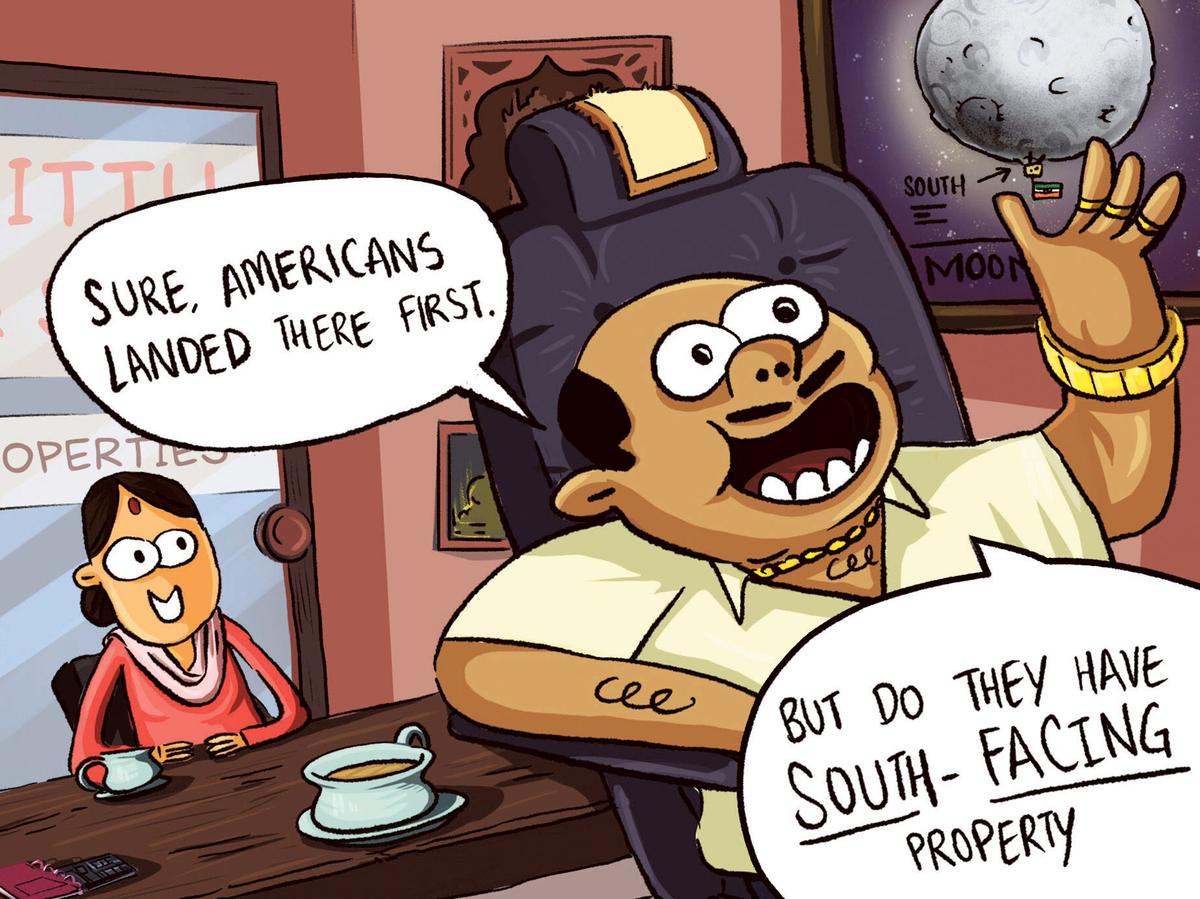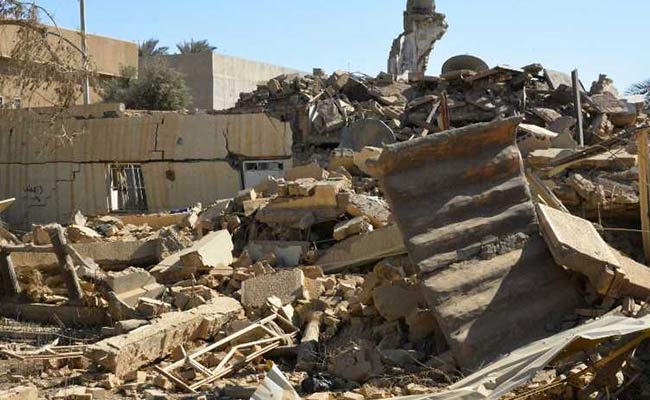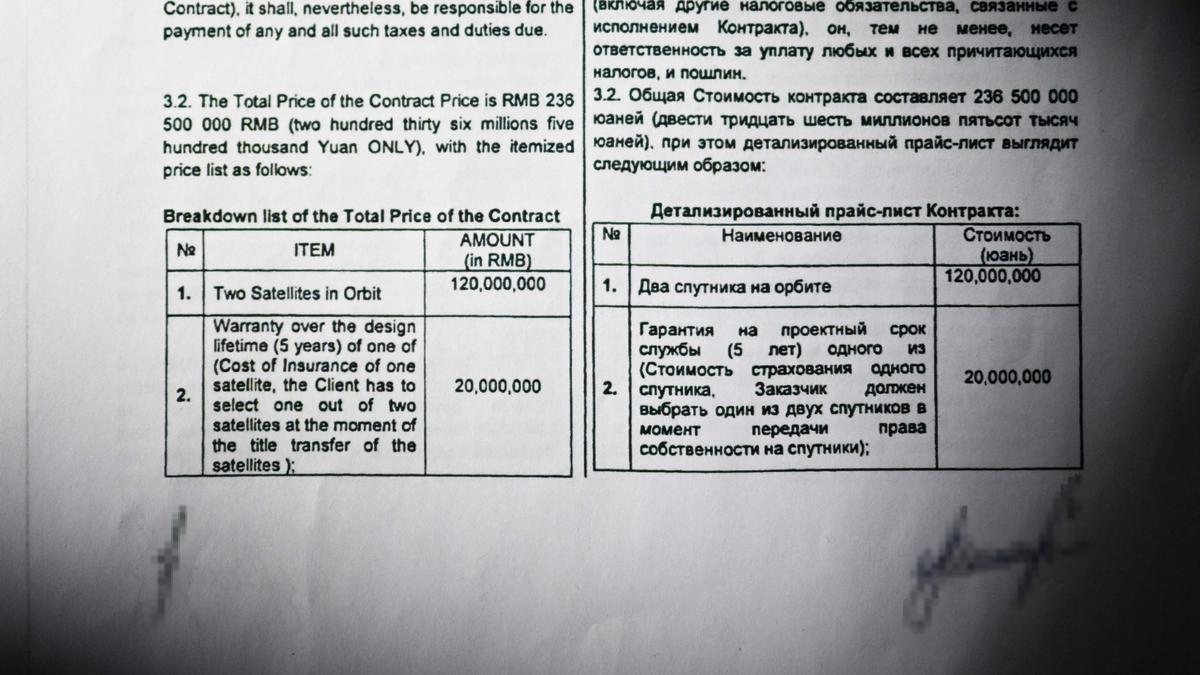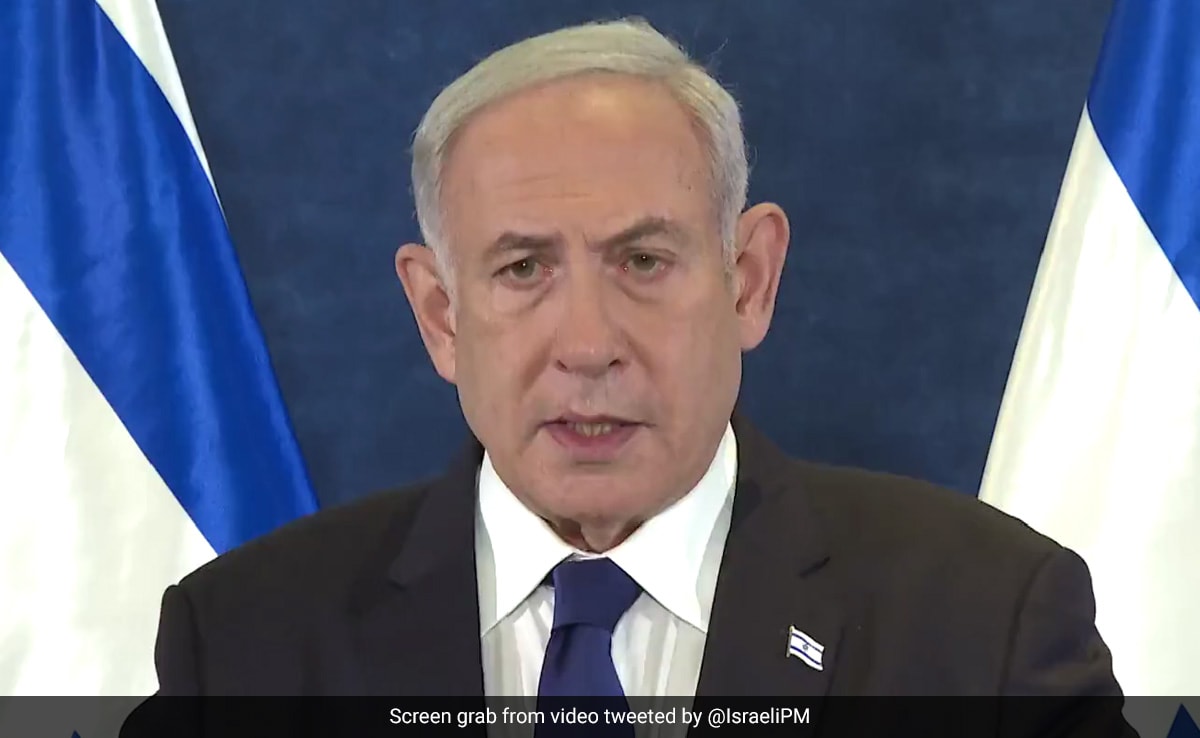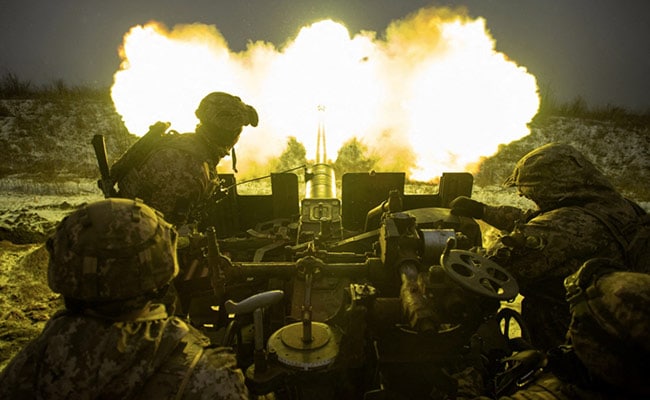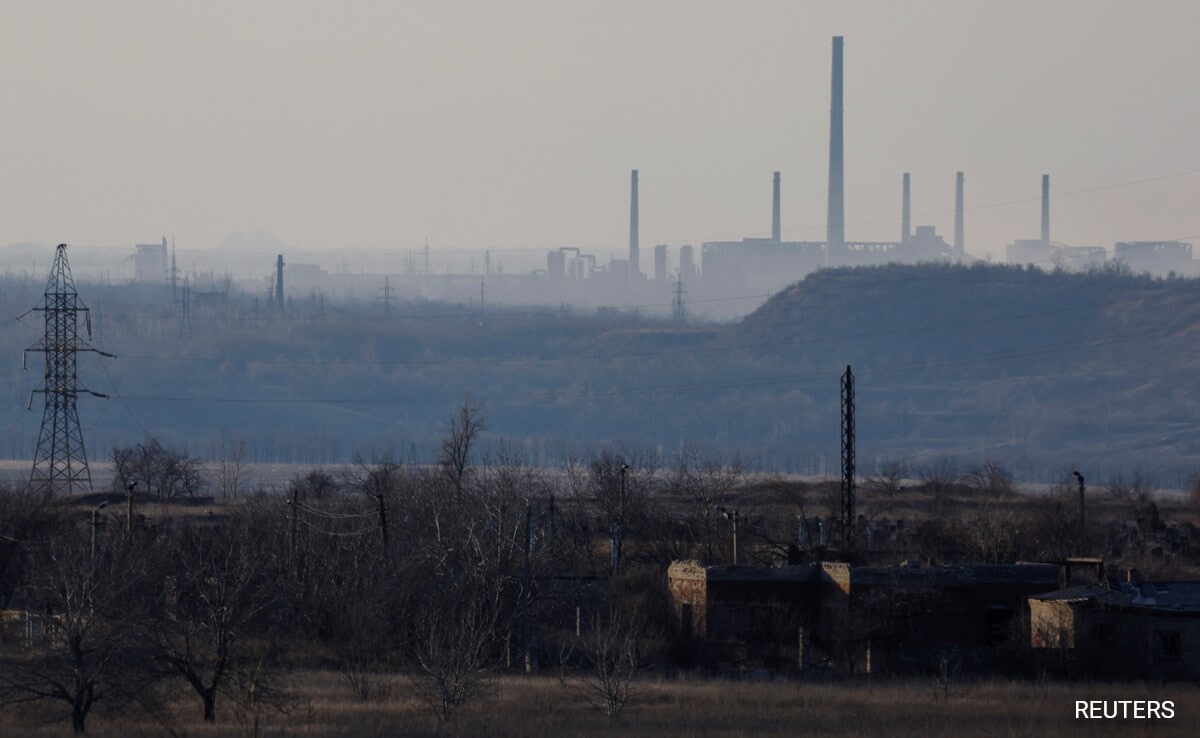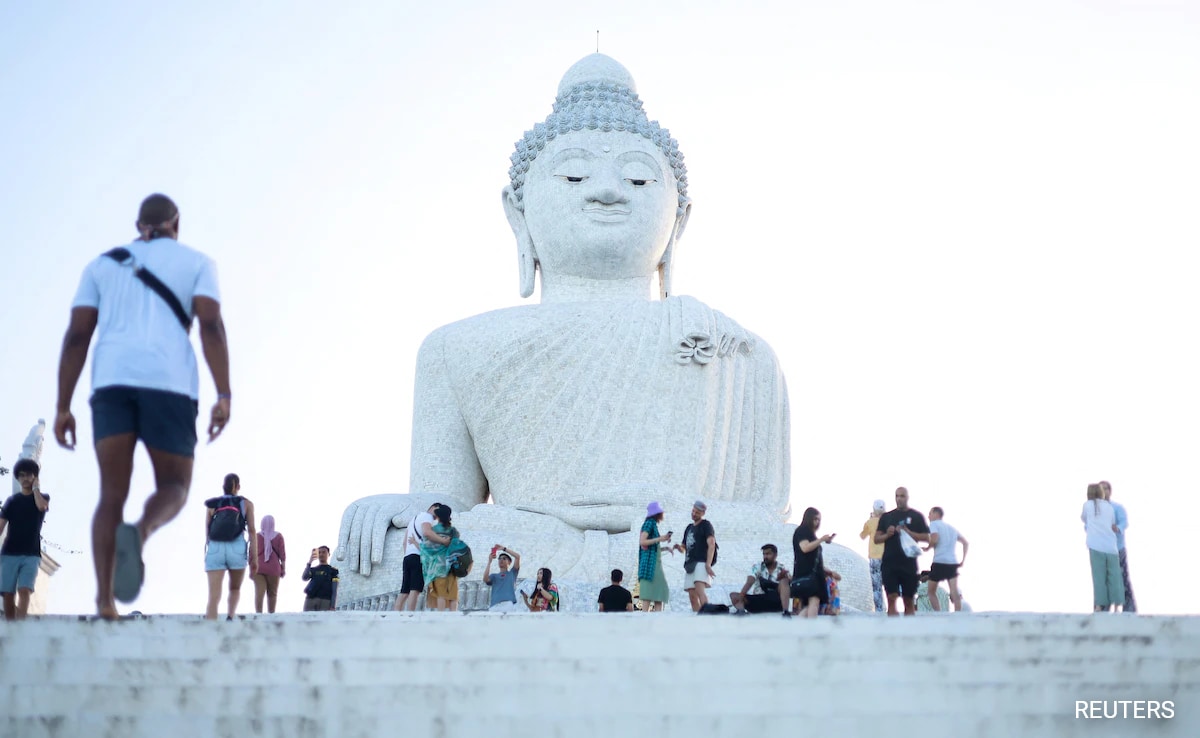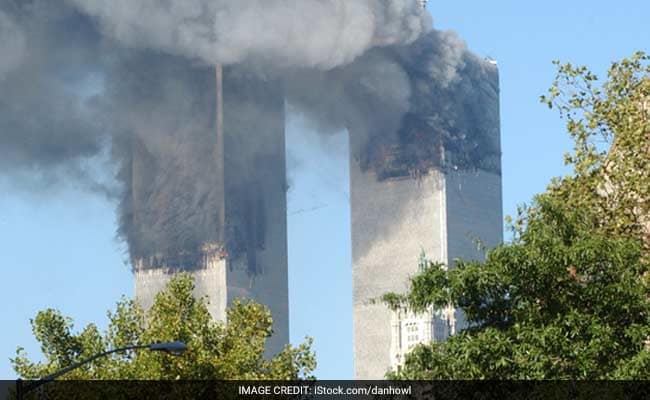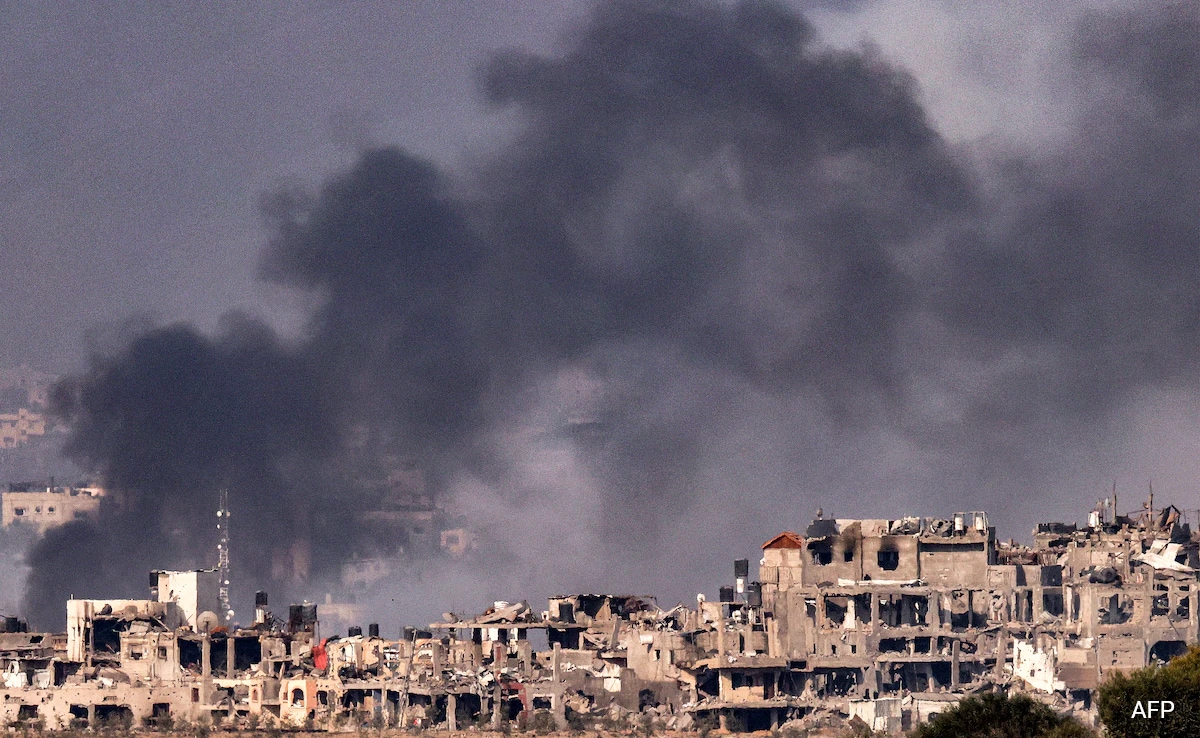Benjamin Netanyahu said this is the second stage of a war whose goals are clear (File)
Tel Aviv, Israel:
Israel’s war on Gaza militants will be “long and difficult”, Prime Minister Benjamin Netanyahu warned Saturday as Hamas demanded the release of all Palestinian prisoners in exchange for the hostages it seized three weeks ago.
The United Nations warned thousands more civilians could die in Gaza as Israel said ground forces were still operating inside the Hamas-run territory more than 24 hours after entering it on Friday.
Israel unleashed a massive bombing campaign after Hamas gunmen stormed across the Gaza border on October 7, killing 1,400 people, mostly civilians, and seizing more than 220 hostages, according to Israeli officials.
The Hamas-controlled health ministry in Gaza said Israeli strikes had since killed 7,703 people, mainly civilians, with more than 3,500 of them children.
The conflict is the fifth and deadliest in Gaza since Israel unilaterally withdrew troops and settlers from the Palestinian territory in 2005.
UN human rights chief Volker Turk warned of “the possibly catastrophic consequences of large-scale ground operations in Gaza”, saying “thousands more civilians” could die.
The intense strikes against Hamas, which has ruled Gaza since 2007, provided cover for Israeli ground forces to step up operations.
“Since early Friday evening, combined combat forces of armour, combat engineers and infantry have been operating on the ground in the northern Gaza Strip,” the army said late Saturday.
Israel has massed tens of thousands of troops along the Gaza border raising expectations of a full-blown invasion, with its soldiers making limited ground incursions on Wednesday and Thursday.
“This is the second stage of the war whose goals are clear: destroying the military and leadership capabilities of Hamas, and bringing the hostages back home,” Netanyahu told a news conference.
“The war in the (Gaza) Strip will be long and difficult and we are prepared for it,” he said, describing an “existential test” for Israel.
Defence Minister Yoav Gallant earlier said “We’ve entered a new phase in the war” as “the ground in Gaza shook” with Israeli strikes.
“We attacked above the ground and below the ground,” Gallant said, alluding to the network of tunnels Hamas has built under Gaza.
Israeli fighter jets dropped leaflets over Gaza City warning residents that the area was now a “battlefield”.
“Shelters in northern Gaza and Gaza (City) governorate are not safe,” the army said, urging residents to “evacuate immediately” to the south.
The army already delivered similar warnings earlier in its campaign, but many who fled south ended up returning home after failing to find refuge from Israeli bombing.
‘Price to pay’
Hamas’s armed wing said it was ready to release the hostages it abducted if Israel freed all the Palestinian prisoners it was holding.
“The price to pay for the large number of enemy hostages in our hands is to empty the (Israeli) prisons of all Palestinian prisoners,” Ezzedine al-Qassam Brigades spokesman Abu Obeida said.
“If the enemy wants to close this file of detainees in one go, we are ready for it. If it wants to do it step by step, we are ready for that too,” he added.
Hamas’s leader in Gaza, Yahya Sinwar, said the group stood ready to make an “immediate” exchange.
Some 230 hostages are being held in Gaza, according to the Israeli army, with officials saying dozens of them are foreigners or dual nationals.
Earlier this week, the Brigades said “almost 50” of the hostages had been killed in Israeli strikes.
Facing increasing anger over the fate of the captives as Israel steps up its war on Hamas, Netanyahu met representatives of hostage relatives on Saturday.
Ifat Kalderon, whose cousin Ofer Kalderon is believed to be held in Gaza along with members of his family, told AFP she supported the idea of a prisoner release in exchange for the hostages.
“Take them, we don’t need them here. I want my family and all the hostages to come back home,” she said.
Netanyahu made no commitment to any exchange deal but assured hostage families Israel would “exhaust every option to bring them home”.
Communications blackout
Overnight, hundreds of buildings and houses were completely destroyed and thousands damaged, Gaza officials said.
Amid the rubble in Shati refugee camp in northern Gaza, Alaa Mahdi likened the destruction to that of an “earthquake”.
“If it were a natural earthquake, it would have been much easier than what happened last night,” he said.
Hamas retaliated with fresh rocket fire, which wounded three people in central Israel.
Billionaire Elon Musk said his Starlink satellite service would support internet access for “internationally recognised aid organisations in Gaza” a day after communications and phone networks were completely cut across Gaza.
The blackout raised alarm, with the Palestinian Red Crescent saying it was affecting emergency calls and critical ambulance sorties, while Human Rights Watch warned it could provide “cover for mass atrocities”.
Starlink is a network of satellites in low Earth orbit that can provide internet to remote locations, or areas where normal comms infrastructure has been disabled.
‘Stop this madness’
EU foreign policy chief Josep Borrell demanded a “pause of hostilities” to allow aid into Gaza, after the UN General Assembly called for an “immediate humanitarian truce”.
The non-binding resolution on Friday received overwhelming support, but Israel and the United States criticised it for failing to mention Hamas.
Addressing a rally of several hundred thousand pro-Palestinian demonstrators in Istanbul on Saturday, Turkish President Recep Tayyip Erdogan said “the main culprit behind the massacre unfolding in Gaza is the West.”
His comments prompted Israel to recall all of its diplomats from Turkey.
Israel’s military campaign has displaced more than 1.4 million people inside Gaza, according to the UN, more than half of its 2.4 million inhabitants.
Supplies of food, water and power to the crowded territory have been almost completely cut off.
A first convoy of aid was allowed on October 21, but only 84 trucks have crossed in total, according to the UN, which says a daily average of 500 trucks had entered Gaza before the conflict.
Between the bombardments and the fuel shortages, 12 of Gaza’s 35 hospitals have been forced to close and the UN agency for Palestinian refugees, UNRWA, said it has had to “significantly reduce its operations”.
(Except for the headline, this story has not been edited by NDTV staff and is published from a syndicated feed.)
Waiting for response to load…


